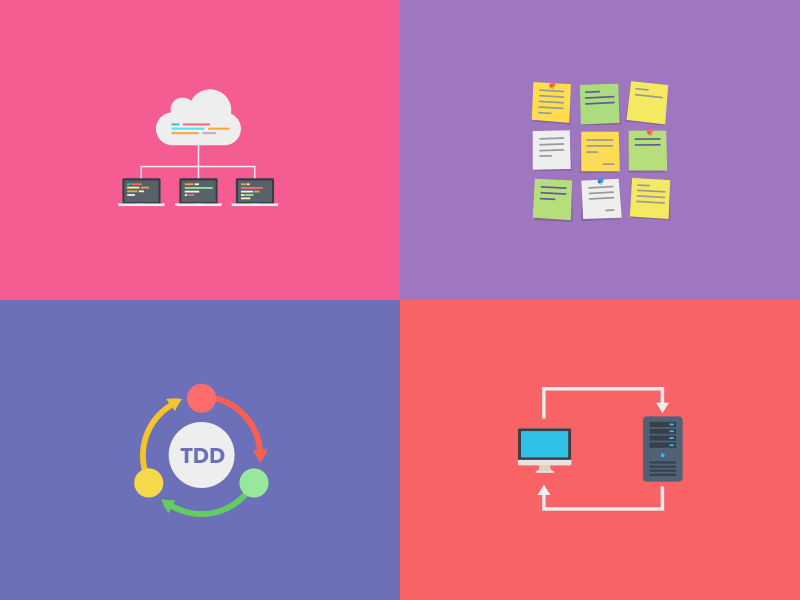I’ve been working as a freelance writer on-and-off over the past four years, and full-time for most of 2016. My career has only just started to flourish — knock on wood — but since last December I’ve learned a lot about finding work. Even more so, I’ve learned about where to find the best work. “Best” means most interesting and most lucrative.
I’m not promising to Unlock! Your Earning Potential!™ or anything like that. If you’re intrigued by the nitty-gritty of freelancing, you’ve probably read versions of my experience before. But if you’re new to this mode of employment, hearing about how I manage could be helpful. Just another data point to tuck away in your brain!
TL;DR
Freelancing is a relationships game, and this holds true across many industries. Here are the two most important things you can do to improve your career in the long-term:
- Find the people who are getting paid to do the work that you want to do. Make friends with them.
- Find the people who are hiring other people to perform the work that you want to do. Make friends with them also.
It doesn’t matter whether you network online or in person, but nurturing solid connections with individual human beings is vital. In fact, “networking” is just a smarmy word for befriending fellow industry participants. Making public contributions to the community will also help expand the mouth of your funnel.
Yes, the unfortunate reality is that building relationships takes time. There is no shortcut that I’m aware of, unless your parents have relevant connections. It’s taken me years to get where I am, and like I said, I’m only just getting the hang of things. However, both aptitude and chance will affect your results. YMMV!
Ways to Meet Clients
Remember, I’m not a veteran freelancer. That said, these three methods do reflect four years of experience. The list descends in order of quality, from most preferred to least preferred. That also happens to be the order from most time-consuming to least time-consuming.
1) Via Friends or Referrals
I became a contributor at Mattermark quite serendipitously. Alex Wilhelm and I had followed each other on Twitter for a while and exchanged a handful of messages. Then he got hired as Mattermark editor-in-chief. On a whim, I sent him a DM along the lines of, “Are you looking for pitches at Mattermark?” The answer was yes.
For me, Mattermark is a perfect gig. I get paid fairly to write about a subject that fascinates me. I have thoughtful editors and I’m able to accrue clips for my portfolio. Writing about startups and venture capital also allows me to conduct interviews that widen my circle of acquaintances.
Desirable jobs like writing for Mattermark come about either because someone I know wants my services, or someone I know suggests me to a person or company in search of a writer. Often these leads literally come through Twitter, because I spend a lot of time talking to people on that service. A subreddit, niche forum, or IRL meetup could work just as well. Sometimes I initiate contact and sometimes the prospective client asks about my availability.
Making friends in order to find clients can take months or years to pay off. It’s speculative and unpredictable, but luckily the process is intrinsically rewarding.
I view every new person I befriend as a possible source of work, and try to comport myself accordingly (with mixed success). Someone won’t hire me or refer me unless they feel good about my work ethic, analysis skills, and integrity.
2) At Random
Sometimes people contact me out of the blue. The projects they bring to the table can be delightful or baffling. Sometimes these prospective clients accept my rates without batting an eye, and sometimes they ghost when I start talking numbers.
I am not sure how to optimize for this other than having an online presence and constantly self-promoting. Although it’s a bit mysterious, I do like getting work via surprise email. It seems to be a result of personal marketing that I’ve already done and would keep doing anyway.
For example, a Dutch tech consultancy reached out and asked me to help internationalize their website. If I remember correctly, they found me via a blog post about product communication that I shared on Hacker News.
3) By Applying Willy-Nilly
I do this less now, but I used to get one-off jobs all the time by applying to Craigslist listings. Other sites like Indeed and Glassdoor can also be fruitful, but people tend to look for full-timers on those platforms, rather than freelancers. Besides, Craigslist is unmatched in terms of posting volume, and their simple, utilitarian interface is a blessing.
The key here is to have a general cover letter that you can adjust as needed. The amount of time you spend customizing your initial contact with the prospective client should be directly proportional to how much you want the job.
Applying to a random Craigslist ad is how I got my first professional freelancing gig, managing social media for Creeklife. I’ve landed numerous other gigs this way, ranging from soulless #content writing to sociopolitical essays.
Conclusion
That’s it. Those are the three ways that I’ve found my clients. As you can tell, I vastly prefer the first method. Four years in, I feel like networking is finally starting to pay off for me. Thank goodness that my personality prompted me to do lots of arguing and chitchatting in the first place! (I know that not everyone is able to spend years doing speculative emotional labor. I’m not sure how to change that.)
It’s not easy. Anyone who tries to sell you a simple step-by-step guide to being a successful freelancer is oversimplifying. Maybe you noticed that the guidance in this blog post is pretty overarching and vague. I didn’t even cover how to differentiate yourself from the competition! And how do you go about making friends, anyway?!
Well, them’s the breaks. You have to muddle along yourself. Seek out information proactively. Anyone who’s not comfortable doing that isn’t suited to freelancing.



